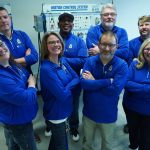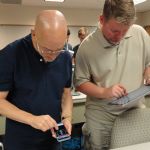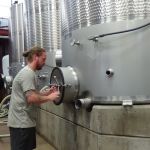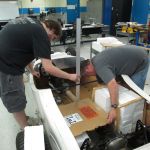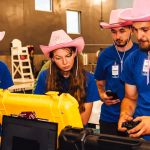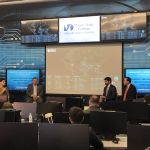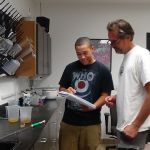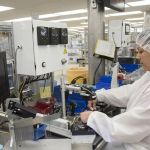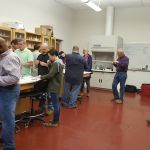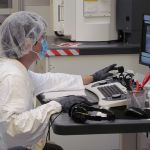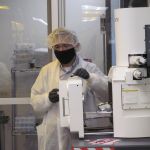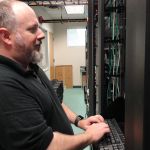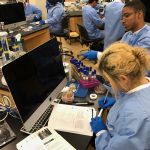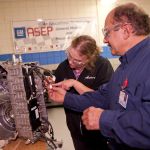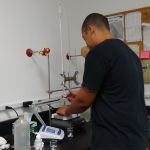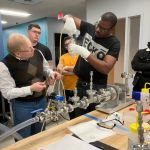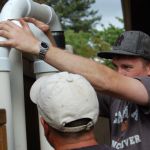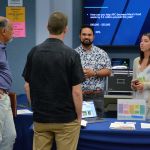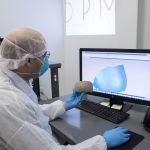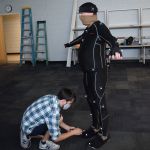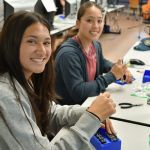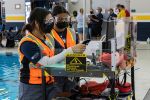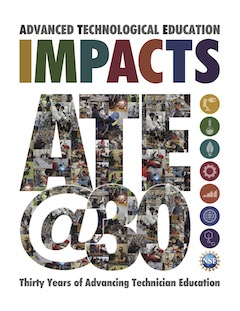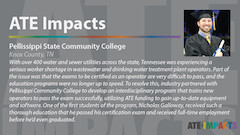
Ivan Alonso is an undergraduate who has been involved in multiple facets of ongoing research thanks to his role as a peer leader in the computer science program at El Paso Community College (EPCC).
EPCC’s Developing Computational Adversarial Thinking project (National Science Foundation Award Abstract #2300378), led by Computer Science Professor Christian Servin, explores what happens when adversarial thinking is infused in three introductory computer courses. The project is also studying the impact of experiential learning opportunities on student recruitment and retention.
“Adversarial thinking is a way to think ahead or to prevent potential attacks or capabilities that can happen to your code,” Alonso explained of the combination of cybersecurity skills in software engineering courses during the student poster session at the 2024 ATE Principal Investigators’ Conference in Washington, D.C. A peer leader for one year and then leader of the peer leaders another year, Alonso’s scientific poster included displays of data from several cohorts of EPCC students.
“So we did a kind of an experiment where we had two groups of students. One group that took the courses, just normal courses without the adversarial concept, and then this group that took the courses with the adversarial-thinking concept and the statistics showed that students that took the courses with the adversarial concept implemented more secure programs,” Alonso said, pointing to graphs on his poster.
Peer-led help sessions have been used by EPCC’s computer science faculty since 2013. The Peer-Led Team Learning model started at the City University of New York and has been used in various science, technology, engineering, and math programs across the country.
EPCC faculty and others have found that students have been willing to ask questions of peer leaders that they have been shy about posing to faculty in class or during office hours. At EPCC peer leaders meet in person or online with up to 15 students at a time to work on activities that reinforce concepts taught by the instructor. Participation in these sessions counts toward 10% of students’ grades in the three introductory computer science courses.
With the ATE grant, EPCC’s computer science program has gained new industry partners who are providing information about real-world challenges. Servin, who is the project’s principal investigator, has incorporated this information in activities for the peer-led team learning sessions as well as for hackathons and workshops that are being supported by the ATE grant. (The grant pays for half of the peer leaders’ wages; half of their wages are paid by the college’s Student Technology Services program.)
Servin said he has found that experiential learning activities “can help the students to get motivated and also increase their sense of belonging.”
